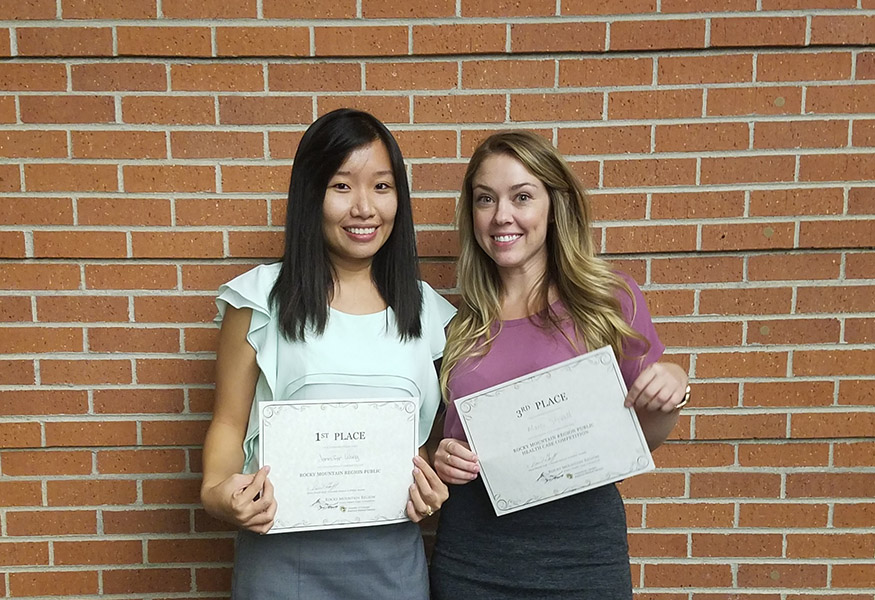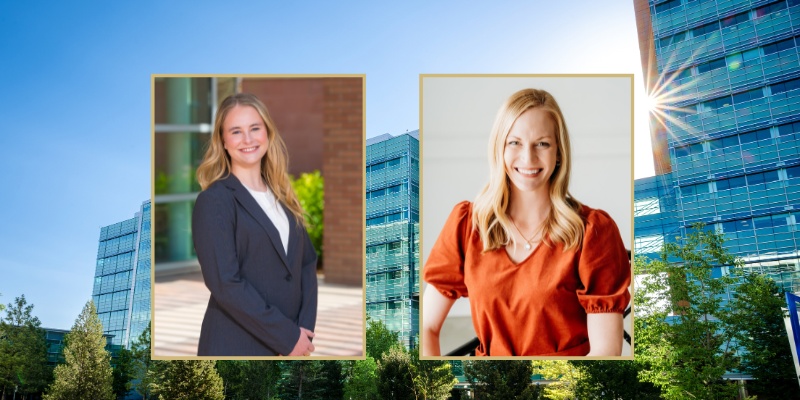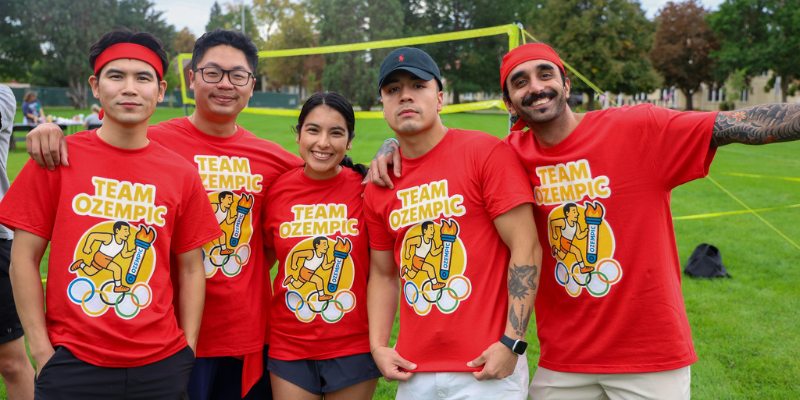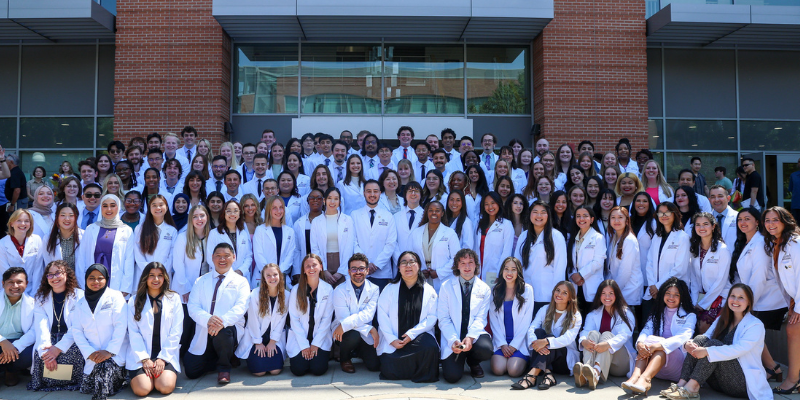First-year CU pharmacy students Jennifer Wang and Marci Stovall recently placed first and third, respectively, at this year’s Rocky Mountain Public Health Case Competition.
The Rocky Mountain Public Health Case Competition helps students across varied disciplines gain experience working in collaborative teams to design innovative solutions to real-world health problems. This year’s case addressed the opioid abuse epidemic in Colorado.
Wang’s team project was “Heals on Wheels,” which focused on establishing a not-for-profit, safe and discreet mobile clinic and phone app service to de-stigmatize opioid drug education and provide support for the underserved and rural communities of Colorado.
“Our clinic would utilize our inter-professional skills to provide services such as Naloxone distribution, clean needle exchange, SBIRT counseling, CPR and Naloxone training, and drug take-back,” said Wang.
“I signed up for this competition with Marci and Nicholas because we thought it would be a fun experience, since we were all interested in pharmacy professions in public health,” said Wang. “However, when the 24-hour countdown began, the randomized, inter-professional team I was assigned to went into ‘solution mode.’ We had great ideas presented by each of our schools – Public Health, Nursing, and Pharmacy. However, the most rewarding aspect of this competition was realizing that the competition was never about coming up with a solution, nor was it about the depth of our knowledge base. To be able to work with a team is one obstacle--but to be able to work under the pressure of a real-life crisis with people you have never met before requires true creativity, adaptability, trust and respect. I was honored to have had the opportunity to represent the School of Pharmacy in one of the most inter-professional competitions that the school has to offer.”
Stovall’s team proposal, “Drug Take Back Every Day,” focused on expanding on the DEA's National Drug Take-Back Day by changing pharmacy practice norms and integrating drug disposal sites into all community pharmacies.
“Our program involved policy changes that would require pharmaceutical manufacturing companies to pay for the disposal of their product using precedent from other states e.g. California,” said Stovall. “The 24-hour competition was a great experience with the program development process as well as working on an interdisciplinary team.
P1 student Nicolas Tomlinson also competed in the event.



